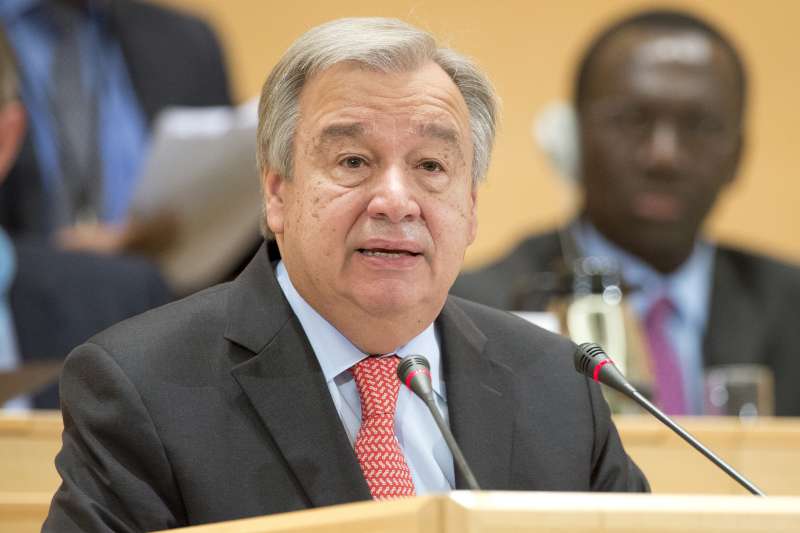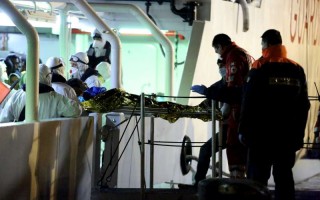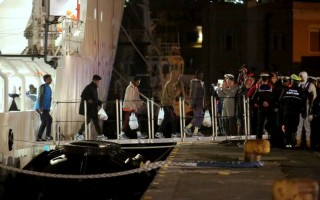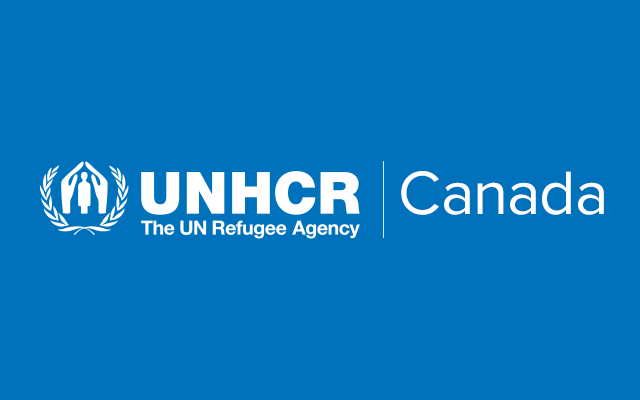
António Guterres, the UN High Commissioner for Refugees makes his opening speech at UNHCR’s 66th session of the Executive Committee on 5th October 2015. © UNHCR / J-M. Ferré
GENEVA, Oct 5 (UNHCR)—The global refugee crisis is so great that the UN refugee agency and other agencies are struggling to respond to and meet all the humanitarian needs they face.
That was the bleak message of UN High Commissioner for Refugees António Guterres, speaking to UNHCR’s Executive Committee today.
Guterres stressed there were now more than 60 million refugees, asylum-seekers and internally displaced persons in the world, and said the number was rising. He recalled that when he became High Commissioner 10 years ago, there were 38 million and the number was falling.
Fifteen new conflicts have broken out or flared up again in the last five years, he said, without any of the old ones getting resolved.
“The number of people globally displaced by conflict every single day has nearly quadrupled in that time—from almost 11,000 in 2010 to 42,500 last year,” he said.
He said the world has become more fragile, conflicts have spread in unpredictable ways, and the nature of conflict has grown highly complex.
“One of the consequences has been a shrinking of humanitarian space, which has made the work of organizations like UNHCR much more difficult and hazardous. The interlinked mega-crises in Syria and Iraq, which have uprooted over 15 million people, are a powerful example of this evolution—but not the only one.”
Displacement and refugee exoduses have marked many continents: just in the last twelve months, Yemen has witnessed 1.1 million displaced people and refugees; an additional half a million people fled from their homes in South Sudan; and in Libya, a further 300,000 are now displaced within the country. Elsewhere, tens of thousands flee gang violence in Central America, while 94,000 have crossed the Bay of Bengal in search of protection.
Much of this new and old displacement had been hardly visible to the world, the High Commissioner said:
“In the past, we used to have emergencies and protracted refugee situations; now we seem to have more and more protracted emergencies. For years, we struggled to put displacement on the global political agenda—not always successfully. But after the dramatic events on the beaches and borders of Europe this summer, nobody is now able to ignore a refugee crisis that had been simmering for so long while others weren’t watching.”
The numbers arriving are large—over half a million already this year in Europe—but, Guterres said, that flow was not unmanageable on a continent of more than 500 million people. He said the decision of the European Union to relocate 160,000 asylum-seekers was a key step in the right direction.
However, he said that much more needed to be done for the system to work well, and especially stressed the need for the creation of adequate reception centers near the entry points, with sufficient capacity to receive, assist, register and screen tens of thousands of people, together with more legal avenues for those in search of protection, and also for economic migrants, to be able to access the European territory.
He underlined that the need will be for the longer term, saying the huge population influx into Europe in 2015 was both a refugee and a migration crisis.
In Italy, he said arrivals were “clearly of a mixed nature” with links to African conflicts and the chaos in Libya, but also he said the imbalance in economic and demographic trends for Africa and Europe had contributed to these movements.
“A clear majority of the people arriving in Greece come from some of the world’s top ten refugee-producing countries, mainly from Syria, Iraq and Afghanistan. Greece alone has received over 400,000 arrivals this year—that’s more than nine times the figure of 2014, an acceleration that is largely a result of the Syrian crisis,” Guterres detailed.
He said that faced with the sharp increase in global needs humanitarian agencies could no longer fully cope. He underlined that the humanitarian system was not broken, but said it was in financial crisis.
“We are no longer able to meet even the absolute minimum requirements of core protection and lifesaving assistance to preserve the human dignity of the people we care for.
“The current funding level for the 33 UN appeals to provide humanitarian assistance to 82 million people around the world is only 42%. UNHCR expects to receive just 47% of the funding we need this year. We have managed to avoid meaningful reductions of our direct support to refugee families, but at a high cost to our other activities.”
The High Commissioner said that, in response to the crisis in the past year, UNHCR has reinforced its capacity to deal with emergencies, fielding over 600 emergency response deployment missions in 2014 and 2015.
Protection, especially for children, has also been a priority, as the number of asylum applications lodged by unaccompanied children rose to levels never seen before.
As the numbers of refugees rise, putting enormous pressure on the receiving countries, Guterres stressed that the world must rethink how it finances the response to humanitarian crises. He called for a much closer link between emergency assistance and development aid.
He also said world development actors, including states and global bodies, must do much more to help countries next to conflict zones which host large numbers of people fleeing and are “pillars of peace and stability” in their regions.
The High Commissioner drew attention to a depressing statistic. Just 126,000 refugees were repatriated last year—the lowest number in three decades.
With current prospects for durable solutions limited for many refugees, he said that UNHCR and others needed to focus on new strategies and work with governments and partners to strengthen refugees’ resilience and self-reliance.
He underlined that armed conflict was the biggest driver of displacement. Solutions have to be political but he said that what was lacking was honest brokers and the capacity to bring to the negotiation table all countries which could influence those doing the fighting.
“We will not see real improvement until those that finance, arm and support the parties to each of today’s conflicts overcome their differences and conflicting interests, acknowledge that everyone is losing in these wars, and agree on a common way forward to end the bloodshed,” he added.
Speaking of the upcoming World Humanitarian Summit scheduled for May 2016, Guterres said one of its goals must be the building of a more universal humanitarian partnership moving beyond the essentially Western creation that is the present multilateral system.
More than two-thirds of the world’s refugees are Muslim. Guterres said it was important to recognize that ancient Islamic traditions and legal texts already contained all of the key principles enshrined in the 1951 Refugee Convention.
He appealed for a common front between the Western and the Muslim worlds not only in dealing with refugees but also in countering Islamophobia and the appeal of extremist ideologies for younger generations. This, he said, was a matter of critical urgency.
The High Commissioner stressed the continued importance of the 1951 Convention on refugees, but said more international solidarity and burden sharing were essential to preserve refugee protection.
“As we face the highest levels of forced displacement in recorded history, the institution of asylum must remain sacrosanct, honoured as one of the deepest expressions of humanity—especially now as it is being so severely tested in many parts of the world.”
Read the full text of the High Commissioner’s speech here





